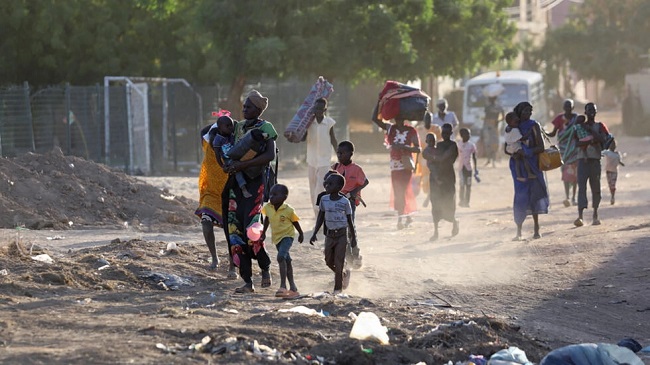UN says up to 20,000 have fled Sudan fighting for Chad
The United Nations said Thursday up to 20,000 people had fled escalating violence in Sudan to seek safety in Chad, many of whom lacked basic needs such as food, water and shelter.
The UN’s refugee agency said the majority of those arriving were women and children, who were currently sheltering out in the open.
Some of the refugees had been caught up in the fighting in Sudan, it said.
“In the past days, an estimated 10,000 to 20,000 people have fled the conflict in Sudan’s Darfur region to seek refuge in neighbouring Chad,” the UNHCR agency said, citing figures from its teams at the border.
“The initial, most pressing, needs are water, food, shelter, health care, child protection, and prevention of gender-based violence.
“Due to the violence experienced by those crossing the border, psychosocial support is also among our top priorities.”
UNHCR said eastern Chad, which borders Darfur, was already hosting 400,000 refugees from Sudan, and the new arrivals were placing additional strain on the country’s already overstretched public services and resources.
Chad’s communications minister and government spokesman Aziz Mahamat Saleh told AFP that between 10,000 and 20,000 people had been welcomed in, mainly in the Assoungha department in Ouaddai province.
“Every day people are pouring in and a humanitarian corridor is open,” he said.
Over 300 people have been killed since the fighting erupted Saturday between forces loyal to Sudan’s army chief Abdel Fattah al-Burhan and his deputy, Mohamed Hamdan Daglo, who commands the paramilitary Rapid Support Forces (RSF).
The fighting between the forces of the two rival generals showed no signs of abating ahead of festivities marking the end of Ramadan.
“Tragically, we have already received reports of refugees caught in the ongoing fighting in Sudan,” said Raouf Mazou, UNHCR’s assistant high commissioner for operations.
“It is urgent that the conflict stops to prevent the loss of more lives. We reiterate our call for all parties to protect civilians, including refugees and displaced people, and to respect the safety of humanitarian staff so that critical aid can be delivered.”
Source: AFP




